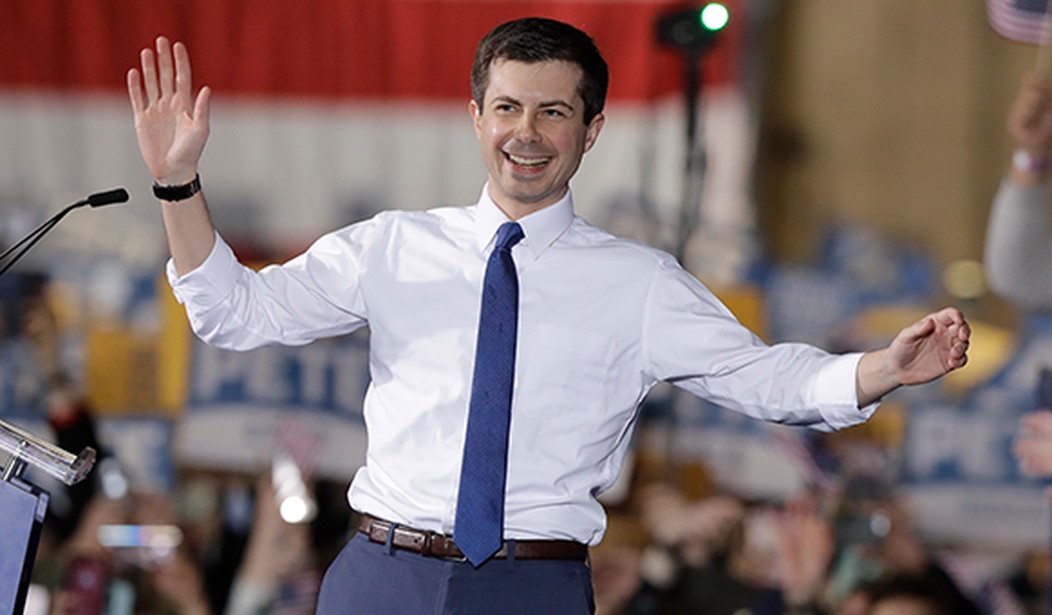Mayor Pete Buttigieg, the media adorned moderate who will supposedly bring statesmanship and civility back to politics, just pulled the biggest political farce in recent memory. Buttigieg, a gay Midwest white mayor, has struggled to relate with black voters, particularly in South Carolina. Mayor Pete, as he likes to call himself, tried touting a list of 400 black South Carolinians supporting what he calls his "Douglass Plan." This plan is aimed specifically at helping black people in America. The only problem with his 400 endorsements were that 42 percent of the people were white, many on the list never recalled endorsing Buttigieg, and he used generic stock photos from black people in Kenya on his campaign website. How did he pull off the stunt? Perhaps he learned it from Big Unions. Here's why.
Ryan Grim over at The Intercept reported this past weekend that Buttigieg announced 400 black South Carolinians "endorsed" Buttigieg's Douglass Plan which he released earlier this year. But, as highlighted on Twitter, "A lot of the people are confused because they didn’t endorse...42 percent of the list is white...They used stock photos from Kenya."
Yesterday Pete Buttigieg put out a list of 400 Black South Carolinians that endorse him/his plan.
— Rachel R. Gonzalez (@RachelRGonzalez) November 16, 2019
-A lot of the people are confused because they didn’t endorse.
-42 percent of the list is white.
-They used stock photos from Kenya.
Yet we have heard nothing from his campaign.
As Grim notes, the email blast from Buttigieg read as follows:
"There is one presidential candidate who has proven to have intentional policies designed to make a difference in the Black experience, and that’s Pete Buttigieg,” read the open letter released along with the plan. “We are over 400 South Carolinians, including business owners, pastors, community leaders, and students. Together, we endorse his Douglass Plan for Black America, the most comprehensive roadmap for tackling systemic racism offered by a 2020 presidential candidate.”
But, one person whose name was on it was Johnnie Cordero. Cordero said he emailed with the campaign to find out more about the plan, but never actually endorsed it.
"What I was talking back and forth with them about was, who drafted the plan? I know Pete didn’t draft the plan. I’m sure he had his advisers do it. But I wanna know who was involved in this plan such that you can claim that you speak for black America. The long and the short of it was they never sufficiently answered my questions, so I never actually endorsed the plan. They went ahead and used my name,” Cordero said.
Recommended
Cordero's statements rang true for many others on the list. So, how did their names get on the list? Well, the Buttigieg campaign sent an "opt-out" email. Here's how his campaign defended the tactic:
In the HBCU Times op-ed and in communications with the press, we’ve been clear that not every supporter of the plan is Black, and have never claimed otherwise in any public communication. We never gave the impression publicly that these people were endorsing Pete, only that they supported the plan. After they indicated their support, we reached out to people multiple times giving them the opportunity to review the language of the op-ed and the option to opt-out. We did hear from people who weren’t comfortable being listed and we removed them.
Essentially, the campaign sent an email saying, "If you don't want to to endorse Buttigieg, please let us know." This means, if you did not respond to their email saying, "No, I don't endorse Buttigieg," then the campaign took your non-response as a sign you did actually endorse him.
These are the same tactics Big Unions use. As highlighted by cases brought forth by the National Right to Work Foundation, unions regularly send employees "opt-out" notices with unclear language. Unions, often illegally, send workers notices saying, "If you would like to opt-out of having union dues taken from your paycheck, please let us know by (such-and-such a date.)" Unions often send this notice with little time to actually "opt-out," have vague and unclear restrictions such as requiring workers to take time off from work and do it in person, and use generally sleazy tactics to steal workers' dues.
Buttigieg's campaign did the same bogus technique with South Carolinian black voters. Why should they trust him?

























Join the conversation as a VIP Member